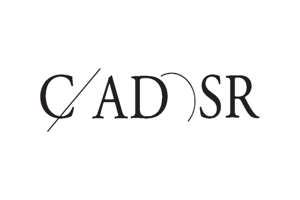Località Terraia, 44
06049 Spoleto
Italy
Cosmological Gardens, Encuentro IV: Cultivating Caring Cultures, an intensive residency and workshop at the Villa Pianciani, Spoleto, Italy.
The Center for Arts, Design, and Social Research (CAD+SR) is pleased to announce applications are being accepted for Visiting Researchers to participate in Cosmological Gardens, Encuentro IV: Cultivating Caring Cultures, a research residency and workshop for activists, artists, designers, architects, environmentalists, farmers, scholars, and writers, to be held at the historic Villa Pianciani, Spoleto, Italy, June 28–July 4, 2022. The deadline to apply is May 10, 2022, with notifications of acceptance made on May 15. Cosmological Gardens, Encuentro IV is limited to 15 participants, all of whom will live, work, cook, and eat at the Villa Pianciani for the week, while also engaging in workshops and collective dialogues. Applicants are invited to join us for an information session about the program.
Cosmological Gardens is an ongoing research project engaging an intensive consideration of the planetary geographies of caring cultures and their implications for anti-extractivist and decolonial action. Cosmological Gardens, Encuentro IV is facilitated by CAD+SR Senior Research Fellows Pelin Tan (Turkey), curator, artist, architecture theorist, and Luigi Coppola (Italy), artist and co-activator of Casa delle Agriculture, Evolutionary Gardens (Italy). They will be joined by Faculty Fellows Rirkrit Tiravanija, artist, (New York/Thailand), Elizabeth Hoover, Professor of Environmental Science, UC-Berkeley, (US), Gediminas and Nomeda Urbonas, artists, educators, and founders of Urbonas Studio (Lithuania), and John Mpaliza, activist, (Congo/Italy).
This is the third year of the CAD+SR Cosmological Gardens research project. In this, the first in-person iteration of its workshops, Encuentro IV will consider care ethics as a both a position and an affective concern that demands innovative and sustained responses to the planetary crisis. How can human conduct and its effect on the more than human environment be rethought as an ontological project that requires multiple ways of knowing? How are we centering indigenous and decolonial thinking, cultivation practices, and other critical approaches that provide exit points from modernity and entry points to alternative horizons of being? How might artistic strategies contribute to the long process of reinventing a collective imaginary of caring cultures? The seminars and workshops during our week together will address these and other questions through in-person dialogues, as well as through on-line conversations with additional activist researchers in Palestine, China, and Senegal who share a commitment to relational and transversal methods that cut across contemporary art, architecture, and social and environmental sciences. Opportunities for individual mentorship and sharing knowledge towards collaborative projects will also be provided.
Along with these critical exchanges, our time together will include hands-on work in conceiving and designing projects focused on questions of the preservation and cultivation of the immediate environs, engaging the histories and cultures of the region. The gardens, parks, and farmlands of the Villa Pianciani, designed by Giuseppe Valadier in the late 18th century, provide a unique laboratory for participants’ creative research, practical work, and reflection. Located just outside of Spoleto in Umbria, the city and region are rich in significant agroecological and cultural histories and practices. Along with the Associazione Culturale Matilde Pianciani, CAD+SR is constructing a research hub, il laboratorio per l’arte planetarie (the Laboratory for Planetary Arts), for supporting ongoing projects at the Villa Pianciani and beyond. Visiting Researchers will be invited to think with the Laboratory towards its future projects, iterations, and networks.
CAD+SR is an independent, international non-profit arts-based research center that supports the social practices of artists, scholars, and researchers through workshops, fellowships, residencies, exhibitions, and publications. Workshops are designed around topics that are relevant to the specific locale and open onto multiple horizons of transdisciplinary and transnational inquiry. The pedagogical approach, consistent across the Center’s workshops, emphasizes dialogue and exchange, horizontality and experimentation, and intensive, structured time spent together alongside open spaces for individual and collaborative work. This residency and workshop builds on the Center’s ongoing research projects and gatherings, including Un-Writing Nature, (Kirinyaga District, Kenya), Indigenous Planetary Ways of Knowing (Mérida, Mexico), De Rerum Natura: Country vs. City in a Time of General Crisis (Spoleto, Italy); and the previous Cosmological Gardens, Encuentros I-III, 2020–present.







